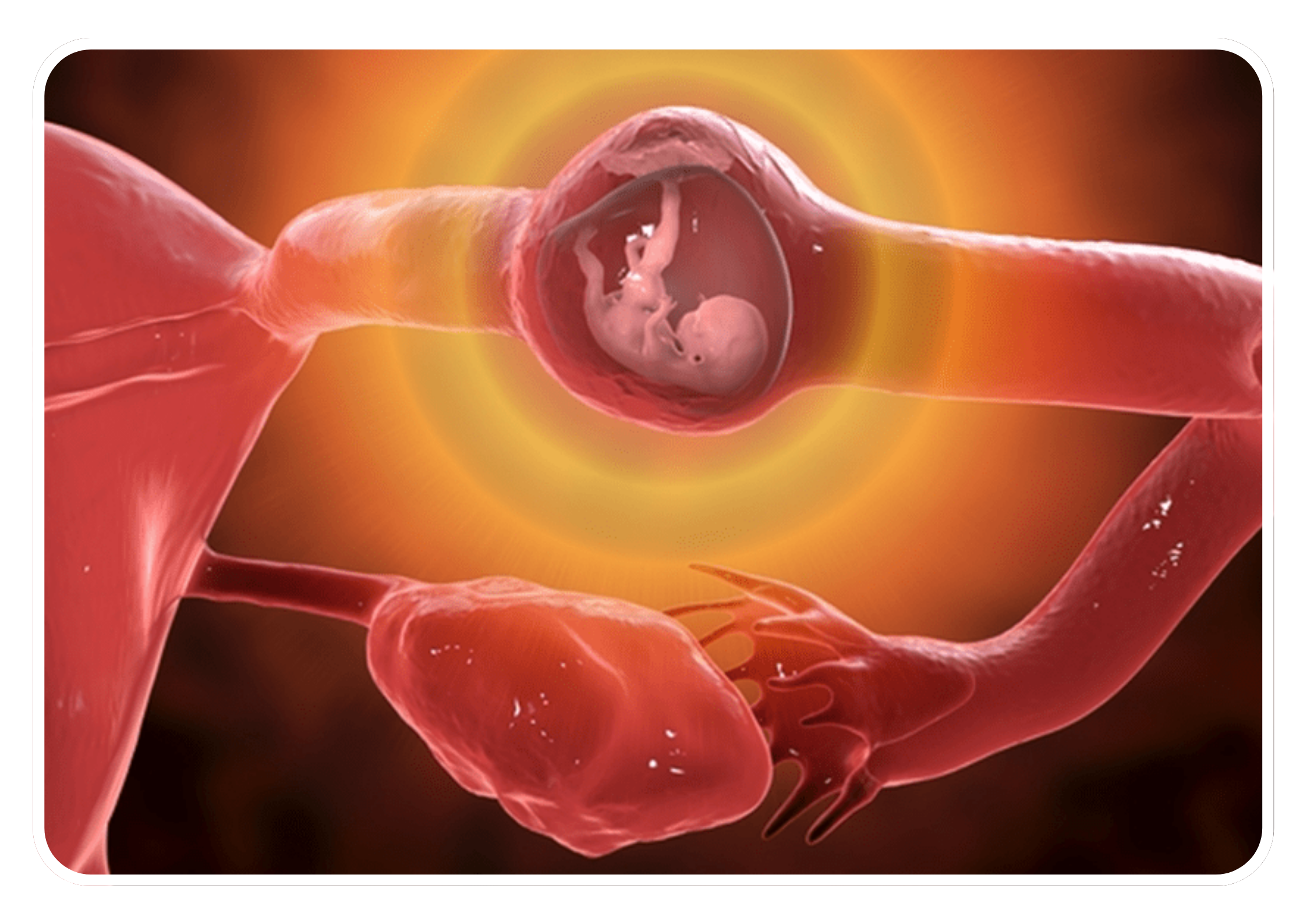Implantation Outside the Uterus
In a normal pregnancy, a fertilized egg travels through the fallopian tube and implants itself in the lining of the uterus, where it grows and develops into a fetus. In an ectopic pregnancy, the fertilized egg implants and begins to grow outside the uterus, most commonly in one of the fallopian tubes. However, ectopic pregnancies can also occur in other locations, such as the ovaries, cervix, or abdominal cavity.
Causes and Risk Factors
Ectopic pregnancies occur when the fertilized egg is unable to reach the uterus or implant properly in the uterine lining. Common causes and risk factors for ectopic pregnancy include:
- Previous ectopic pregnancy
- History of pelvic inflammatory disease (PID)
- Previous pelvic or abdominal surgery, including tubal ligation or tubal surgery
- Abnormalities of the fallopian tubes or reproductive organs
- Maternal age over 35
- Smoking
- Assisted reproductive technology (ART) procedures, such as in vitro fertilization (IVF)
Signs and Symptoms
Ectopic pregnancy may present with symptoms similar to those of a normal intrauterine pregnancy, including missed periods, breast tenderness, nausea, and fatigue. However, ectopic pregnancies may also cause additional symptoms, such as:
- Abdominal or pelvic pain, often on one side
- Vaginal bleeding, which may be light or heavy and may occur earlier or later than expected menstruation
- Shoulder pain, caused by internal bleeding irritating the diaphragm
- Dizziness, fainting, or signs of shock (in cases of ruptured ectopic pregnancy)
Diagnosis
Ectopic pregnancy is diagnosed through a combination of medical history, physical examination, and diagnostic tests, including:
- Transvaginal ultrasound: This imaging test allows healthcare providers to visualize the uterus and fallopian tubes to detect the presence of a gestational sac outside the uterus.
- Blood tests: Blood tests may be performed to measure levels of the hormone human chorionic gonadotropin (hCG), which is typically lower in ectopic pregnancies compared to normal intrauterine pregnancies.
Treatment
The management of ectopic pregnancy depends on various factors, including the location of the ectopic pregnancy, the presence of symptoms, and the risk of complications. Treatment options may include:
- Methotrexate injection: Methotrexate is a medication that can be injected to stop the growth of the ectopic pregnancy by interfering with cell division.
- Surgery: In cases of a ruptured ectopic pregnancy or if other treatments are not suitable or effective, surgery may be necessary to remove the ectopic pregnancy. This may involve laparoscopic surgery (minimally invasive) or open abdominal surgery (laparotomy).
Follow-Up and Monitoring
After treatment for ectopic pregnancy, individuals will require follow-up appointments with their healthcare providers to monitor their recovery, hCG levels, and future fertility. Counseling and support may also be provided to address the emotional and psychological aspects of the experience.
Conclusion
Overall, ectopic pregnancy is a serious condition that requires prompt diagnosis and appropriate management to prevent complications and preserve the individual's health and fertility. Early recognition of symptoms and access to medical care are essential for the timely treatment of ectopic pregnancy.

